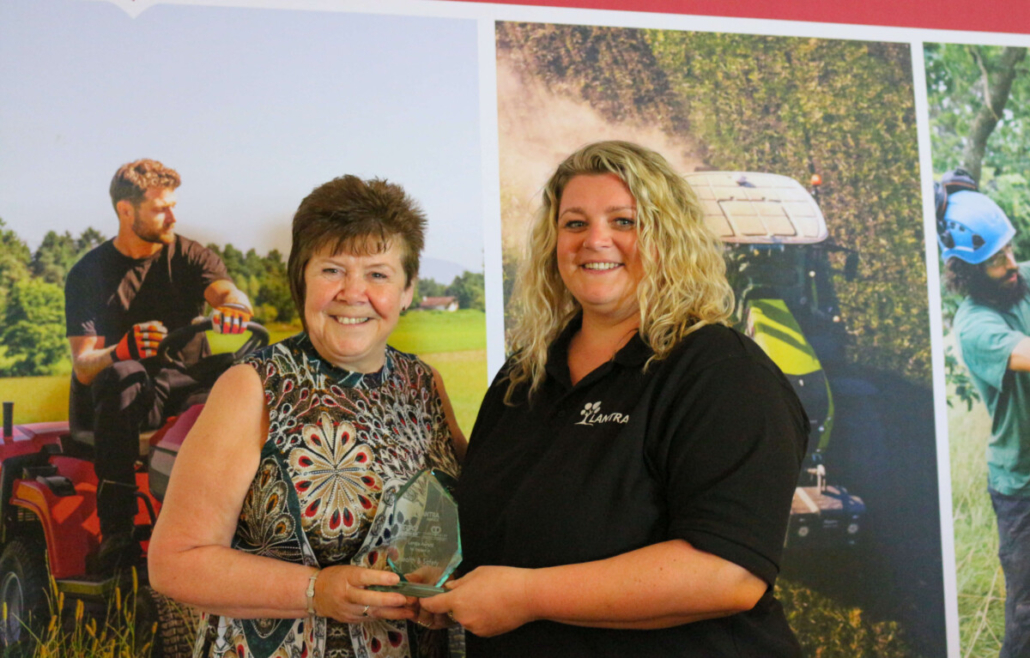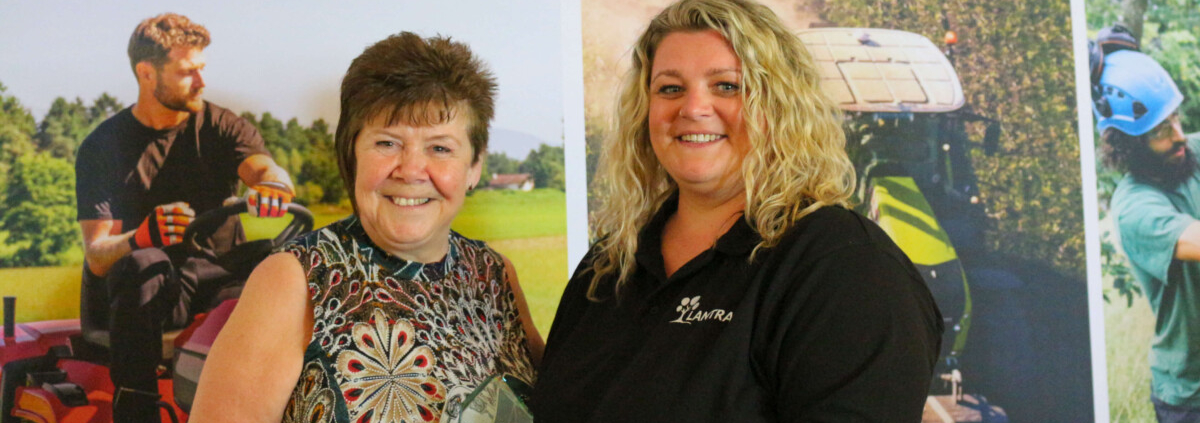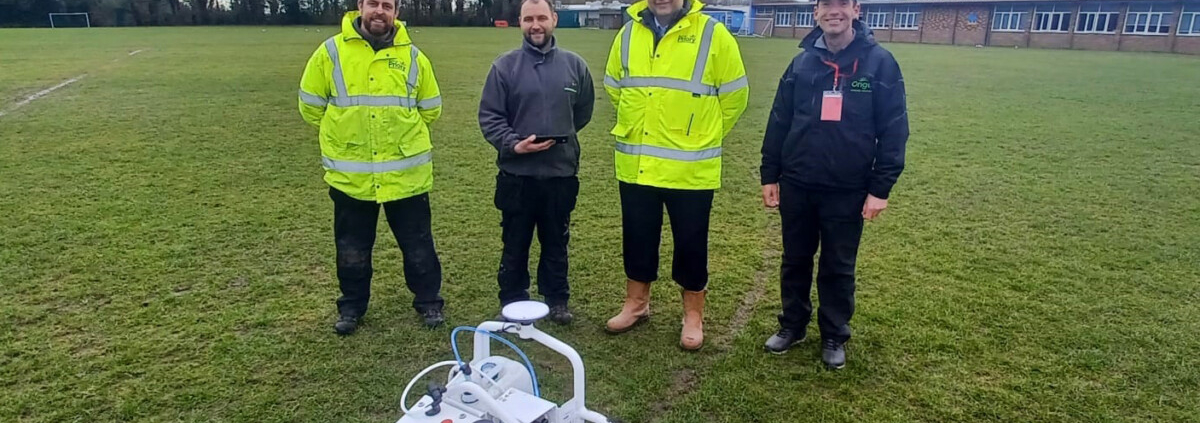Instructors and Assessors shine in inaugural awards
Instructors and Assessors shine in inaugural awards: The hard-work and dedication of Lantra’s Instructor and Assessor network were recently celebrated at the inaugural Instructor Excellence Awards at Stoneleigh Park, Warwickshire.
Over 40 Instructors were in attendance for the ceremony, which also saw Lantra hosting a networking session whilst delegates enjoyed a celebratory hog roast lunch.

Instructors and Assessors shine in inaugural awards
Lantra staff presented winners with industry excellence awards for categories in 4×4, tractors, lift trucks, pesticides, pest control, health and safety, ground-based chainsaw, tree inspection, aerial arboriculture, plant and machinery and also landscape tools.
As well as individual industry awards up for grabs, there were also categories for outstanding contribution, best newcomer and longest serving Instructor. Trophies and winner prizes were kindly sponsored by Lantra partners EGO Power Plus and Cooper Pegler.
One of the highlights of the event saw Edward Willmott – a Lantra Instructor of 53 years – sharing an insightful and moving speech about his time teaching cattle hoof trimming whilst accepting his longest serving award.
Stephen Roberts, Head of Instructor Network at Lantra, said: “We were delighted to celebrate the fantastic achievements of our committed Instructor and Assessor network at the recent inaugural event ceremony.
The talented and often unsung individuals inspire and motivate Learners and the next generation daily, imparting key skills and knowledge whilst delivering crucial courses in the environment and land-based industries. A huge congratulations to all the brilliant and well-deserved nominees and winners!”
Sam Jones of SCJ Training, winner of the excellence in ground-based chainsaws and outstanding contribution awards, commented: “I’m so grateful to the Lantra Provider Network for voting for me in the recent Lantra Instructor Awards. It was even better that I actually won a couple of awards! I have been teaching chainsaws as well as other Lantra courses for many years and it is so fantastic to be recognised for my contribution to developing the skills of others.
“I am passionate about training and developing people” Jones continued. “To be awarded the Outstanding Contribution Award was a real surprise to me yet a welcome one as again, my hard work behind the scenes has been recognised.”
Off Road Consultancy’s Leanne Putt also said about the event: “We had a fantastic day and it was a great opportunity to network with other Instructors and Providers. It was a real surprise and an honour to have received an award. It’s nice to receive the recognition of the hard work that we all put in.
“I’m so grateful to be involved with Lantra as it’s such a friendly and supportive environment. I look forward to seeing everyone again next year for great food, great atmosphere and a thoroughly enjoyable day.”
Freelance Instructor Roger Madge added: “I am still on a high following the Instructor Awards on Friday. It was such a great surprise to have received an award and I am absolutely chuffed!
It was a fantastic day and so good to get together with Instructors, Providers and the staff at Lantra.”
For the latest industry news visit turfmatters.co.uk/news
Get all of the big headlines, pictures, opinions and videos on stories that matter to you.
Follow us on Twitter and Instagram for fun, fresh and engaging content.
You can also find us on Facebook for more of your must-see news, features, videos and pictures from Turf Matters.

















